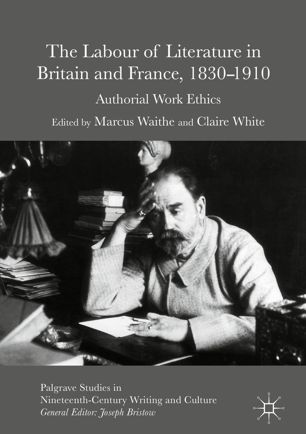

Most ebook files are in PDF format, so you can easily read them using various software such as Foxit Reader or directly on the Google Chrome browser.
Some ebook files are released by publishers in other formats such as .awz, .mobi, .epub, .fb2, etc. You may need to install specific software to read these formats on mobile/PC, such as Calibre.
Please read the tutorial at this link: https://ebookbell.com/faq
We offer FREE conversion to the popular formats you request; however, this may take some time. Therefore, right after payment, please email us, and we will try to provide the service as quickly as possible.
For some exceptional file formats or broken links (if any), please refrain from opening any disputes. Instead, email us first, and we will try to assist within a maximum of 6 hours.
EbookBell Team

4.4
72 reviewsThis volume examines the anxieties that caused many nineteenth-century writers to insist on literature as a laboured and labouring enterprise. Following Isaac D’Israeli’s gloss on Jean de La Bruyère, it asks, in particular, whether writing should be ‘called working’. Whereas previous studies have focused on national literatures in isolation, this volume demonstrates the two-way traffic between British and French conceptions of literary labour. It questions assumed areas of affinity and difference, beginning with the labour politics of the early nineteenth century and their common root in the French Revolution. It also scrutinises the received view of France as a source of a ‘leisure ethic’, and of British writers as either rejecting or self-consciously mimicking French models. Individual essays consider examples of how different writers approached their work, while also evoking a broader notion of ‘work ethics’, understood as a humane practice, whereby values, benefits, and responsibilities, are weighed up.